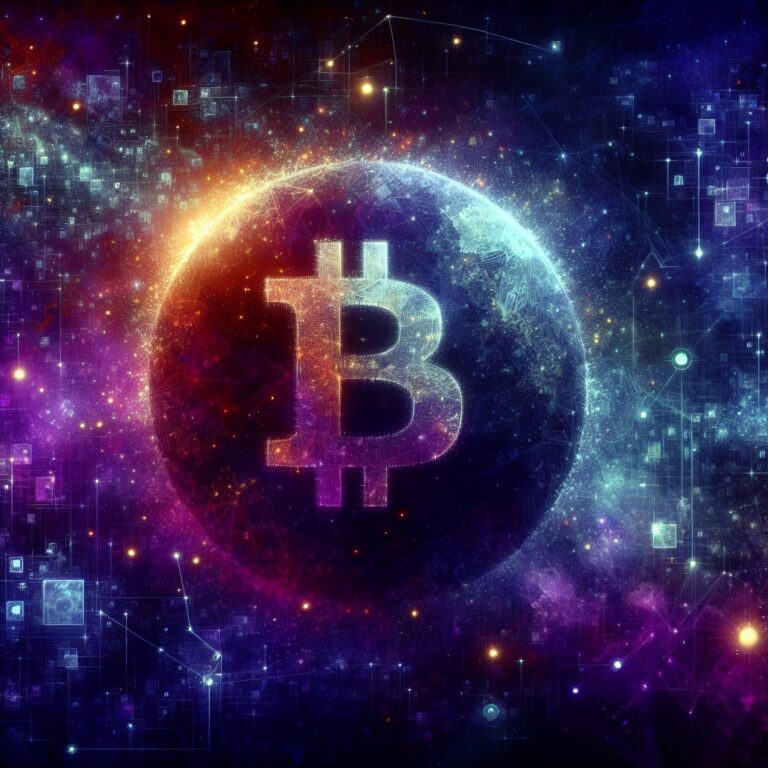The U.S. debt crisis is casting a long shadow over global financial stability, and Coinbase CEO Brian Armstrong is sounding the alarm. On this balmy day in early June 2025, Armstrong has joined a chorus of critics voicing concerns that the precarious state of American fiscal policy could hasten the world’s pivot away from the U.S. dollar, potentially elevating Bitcoin to the status of the world’s reserve currency.
Bitcoin’s Rising Star
Armstrong’s remarks come at a time when the global economic landscape is shifting. The U.S. debt ceiling saga—a drama that seems to perpetually hang over Washington—has investors and policymakers on edge. The CEO of one of the largest cryptocurrency exchanges suggests that Bitcoin, with its decentralized nature and limited supply, is uniquely positioned to benefit from the skepticism surrounding traditional fiat currencies.
“With every debt ceiling showdown, we see a loss of confidence in fiat currency,” Armstrong commented, hinting at Bitcoin’s potential role as a safe haven. “Bitcoin doesn’t have a central bank that can just print more money.”
This view isn’t isolated. Experts at the Digital Currency Group have echoed similar sentiments, noting an uptick in institutional interest in cryptocurrencies as potential hedges against inflation and currency devaluation. However, the path to Bitcoin becoming the world’s reserve currency is fraught with complexities and would require overcoming significant regulatory hurdles and mainstream adoption challenges. This follows a pattern of institutional adoption, which we detailed in Strategy’s $84B Bitcoin Expansion Plan Backed by Wall Street Analysts.
The De-Dollarization Debate
While Armstrong’s insights have sparked intrigue, they also feed into a broader debate about de-dollarization. The global economy has long been intertwined with the U.S. dollar, but recent geopolitical tensions and economic policies are nudging some nations to explore alternatives. From China’s digital yuan experiments to the European Union’s push for a digital euro, the landscape is evolving.
Armstrong argues that Bitcoin offers a universal solution that transcends national borders. But skeptics caution against underestimating the dollar’s resilience. “The dollar has a robust ecosystem supporting it,” says financial analyst Miranda Chen. “It’s not just about currency—it’s about trust, infrastructure, and historical precedence.”
Moreover, the volatility that often accompanies Bitcoin raises eyebrows among traditional investors. While the asset has matured, with increased regulation and adoption, its price swings remain a concern for those accustomed to the relative stability of fiat currencies.
Historical Context and Market Trends
Bitcoin’s journey from an obscure digital experiment to a global financial instrument is nothing short of remarkable. Launched in 2009, the cryptocurrency has weathered numerous storms, from regulatory crackdowns to market crashes. Yet, it has consistently bounced back, bolstered by a community of believers who see it as digital gold.
In recent years, Bitcoin’s narrative has shifted from being a mere speculative asset to a store of value. Events like The Merge and the rise of platforms like Lido and EigenLayer have further entrenched its place in the digital economy. The ongoing integration of Bitcoin into traditional financial systems, with companies like Tesla and MicroStrategy adding it to their balance sheets, signals a growing acceptance. As explored in Metaplanet Registers U.S. Treasury Arm to Grow Its Bitcoin Reserve Strategy, similar strategies are being adopted by other major players.
But here’s the twist: while Bitcoin’s potential to become a reserve currency is tantalizing, it’s not without precedent. Other assets, such as gold, have traditionally played this role in times of economic uncertainty. Whether Bitcoin can achieve similar status remains a topic of heated debate.
Looking Ahead
As we navigate the rest of 2025, Armstrong’s comments urge us to consider Bitcoin’s place in the financial pantheon. Will it rise to the occasion, or will the dollar maintain its dominance? The answer may not be clear-cut, but one thing is certain: the conversation is far from over.
The coming months will be crucial. Regulatory developments, technological advancements, and macroeconomic trends will all play a part in shaping Bitcoin’s trajectory. And while Armstrong’s vision is compelling, it raises more questions than it answers.
Can Bitcoin truly serve as a global financial anchor in a world accustomed to fiat? Or will it remain a complementary asset, sitting alongside traditional currencies? As the crypto world watches, one can’t help but wonder what the future holds in this dynamic financial landscape.
Source
This article is based on: US Debt Crisis Could Make Bitcoin the World’s Reserve Currency: Coinbase CEO
Further Reading
Deepen your understanding with these related articles:
- Bitcoin eyes gains as macro data makes US recession 2025 ‘base case’
- Bitcoin ETFs, gov’t adoption to drive BTC to $1M by 2029: Finance Redefined
- Bitcoin is a matter of national security — Deputy CIA director

Steve Gregory is a lawyer in the United States who specializes in licensing for cryptocurrency companies and products. Steve began his career as an attorney in 2015 but made the switch to working in cryptocurrency full time shortly after joining the original team at Gemini Trust Company, an early cryptocurrency exchange based in New York City. Steve then joined CEX.io and was able to launch their regulated US-based cryptocurrency. Steve then went on to become the CEO at currency.com when he ran for four years and was able to lead currency.com to being fully acquired in 2025.


